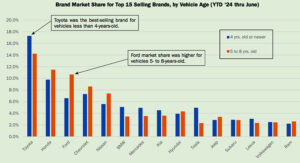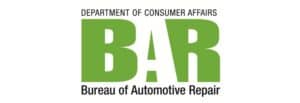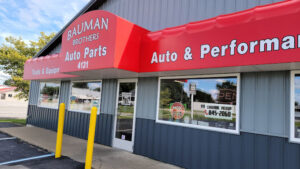CEC Replacement Tire Regulations requires information on signage for each replacement tire, which is “vague and unworkable,” according to ASCCA
Sacramento, Calif.—In an effort to develop and increase energy efficient replacement tires for consumers, the California Energy Commission (CEC) is in the process of creating new regulations to require all automotive repair dealers (ARDs) that sell tires in California to post tire information signs and provide disclosures for the driving public.
While California automotive trade associations such as Automotive Service Councils of California (ASCCA) have stated support for efforts in developing and increasing energy efficient replacement tires, there are concerns with the proposed regulations, which the CEC is acting on through legislation passed 20 years ago (AB 844 – Nation, Chapter 645, Statutes of 2003).
The regulations require all ARDs to maintain signage mandates so that signs are to be replaced every time tire prices change, which places unclear requirements when providing tire efficiency/rating system disclosure information to consumers, according to ASCCA. The association stated that those regulations will negatively impact small businesses by placing “unreasonable and costly mandates” upon any auto repair shop selling tires in California — and requiring signs to be replaced every time tire prices changes.
In addition, ASCCA argues that the regulations are overly broad and capture all ARDs in the definition of “tire dealers.” There are no exemptions for the auto repair shop that occasional replaces a tire.
In a letter to the CEC, ASCCA outlined its concerns, among them that language in the proposed CEC Replacement Tire Regulations requires pricing information on signage for each replacement tire, which is “vague and unworkable.”
“Many ARDs do not carry replacement tires in stock. On occasion, they may order a replacement tire for a customer from a wholesale distributor or sublet the tire replacement to a third-party vendor,” wrote Gloria Peterson, ASCCA executive director, to the CEC. “These ARDs will not know the price of the tire until the time the tire order is placed. Some ARDs may have tires in stock. If tire prices change, due to outside economic factors, the automotive repair dealer would need to continuously replace each sign with current pricing information. Including pricing information on signs is simply not practical.”
Peterson also inquired that “if a customer purchases and brings their own non-compliant tire to the dealer for installation, can the ARD install tire without violating the law and incurring penalties? How does the ARD handle such a customer request under the proposed regulations and remain compliant?”
In addition, it is unknown how the CEC would enforce these regulations against ARDs — or would other agencies, such as the Bureau of Automotive Repair (BAR), enforce them? ASCCA also asks if the CEC has conducted research to ascertain economic impacts and costs to ARDs if the regulations are implemented.
These issues will be included in the upcoming ASCCA Legislative Advocacy Event, which is an opportunity to gain insight and information related to legislation affecting California auto service shops, April 10, 14, 21, 28 and May 5, via Zoom. The event is free for all to attend.
About ASCCA
ASCCA is the largest independent automotive repair organization in California representing members from all areas of the automotive repair industry including mechanical, auto body, supplier, and educators in the automotive technology field.












Comments are closed.